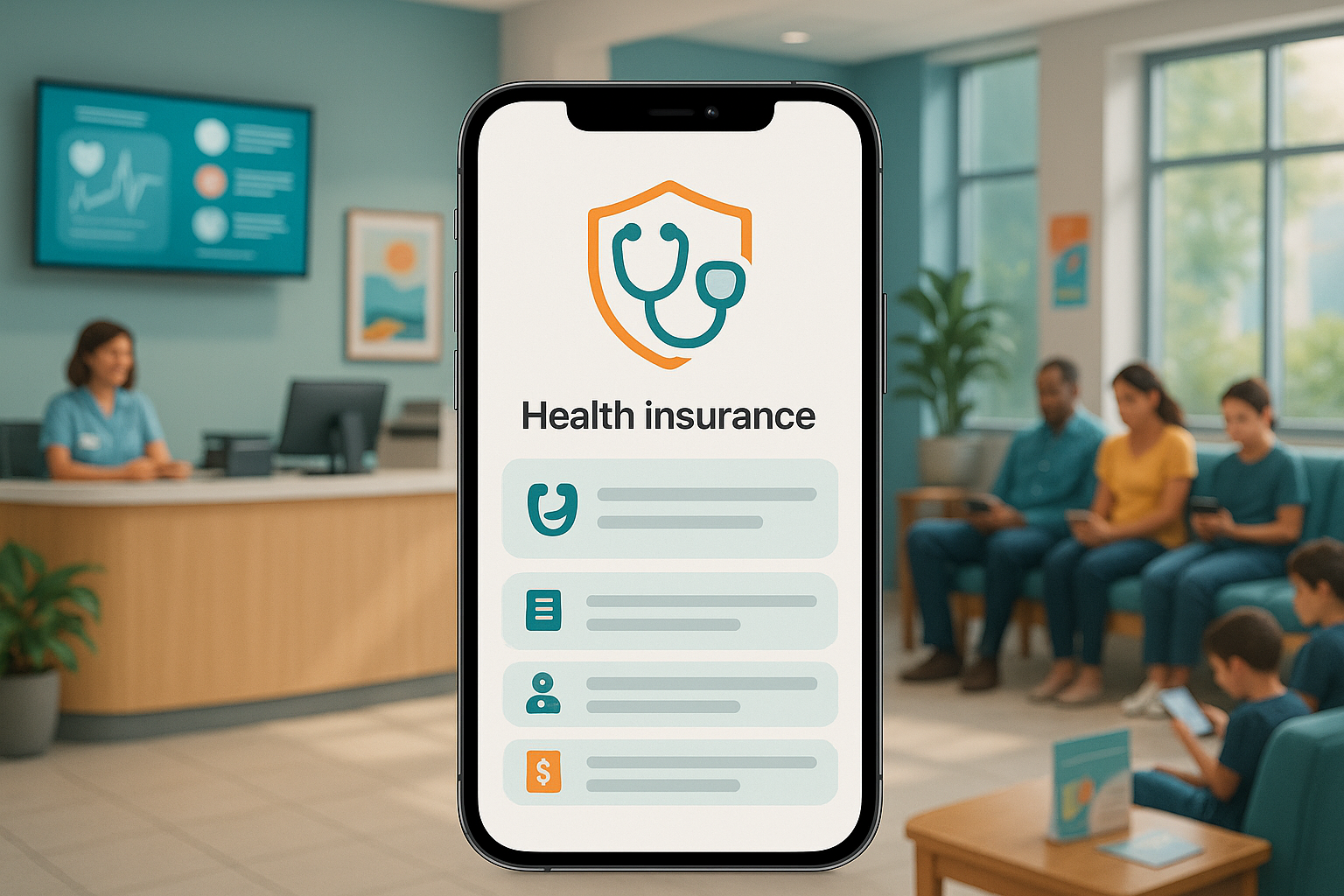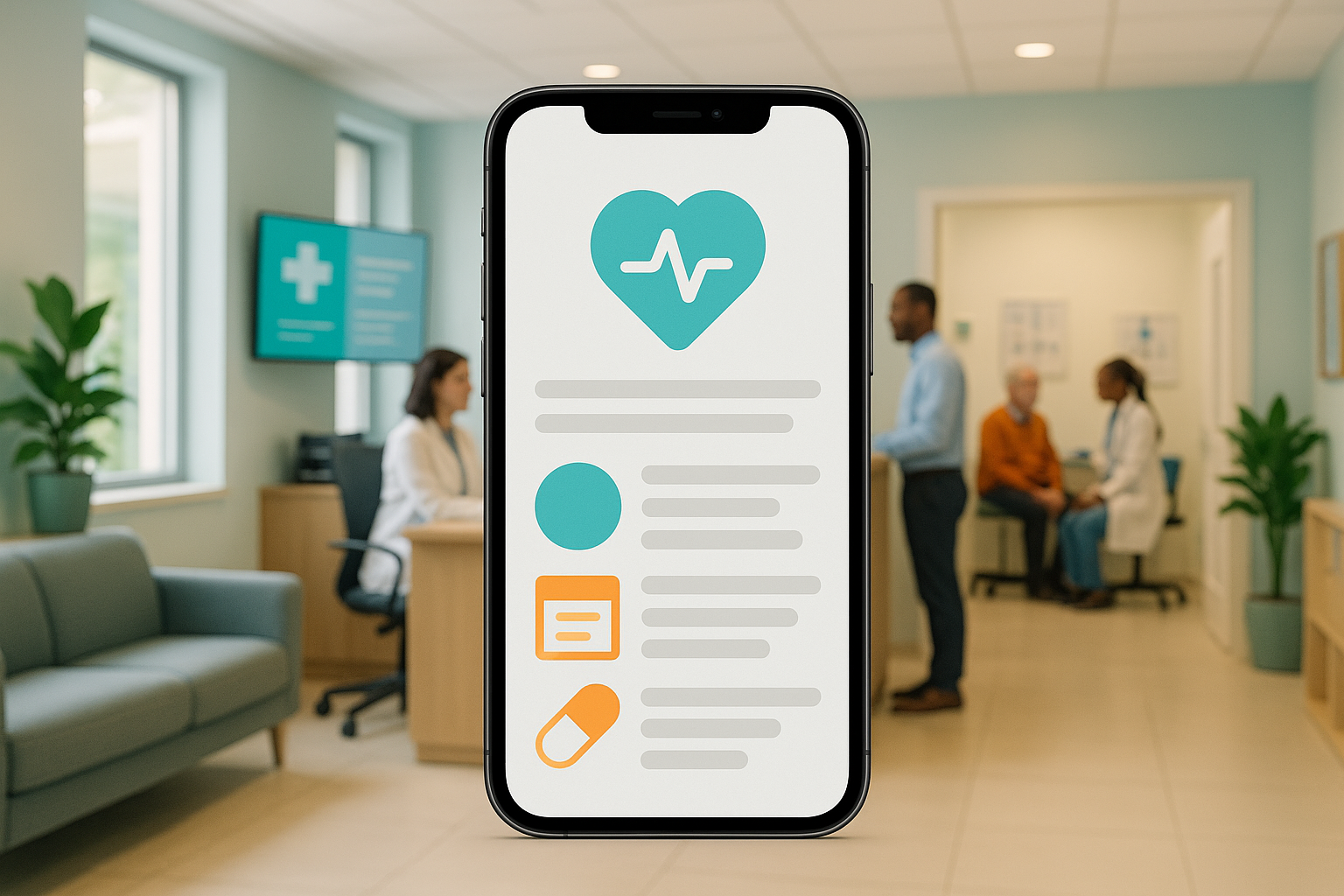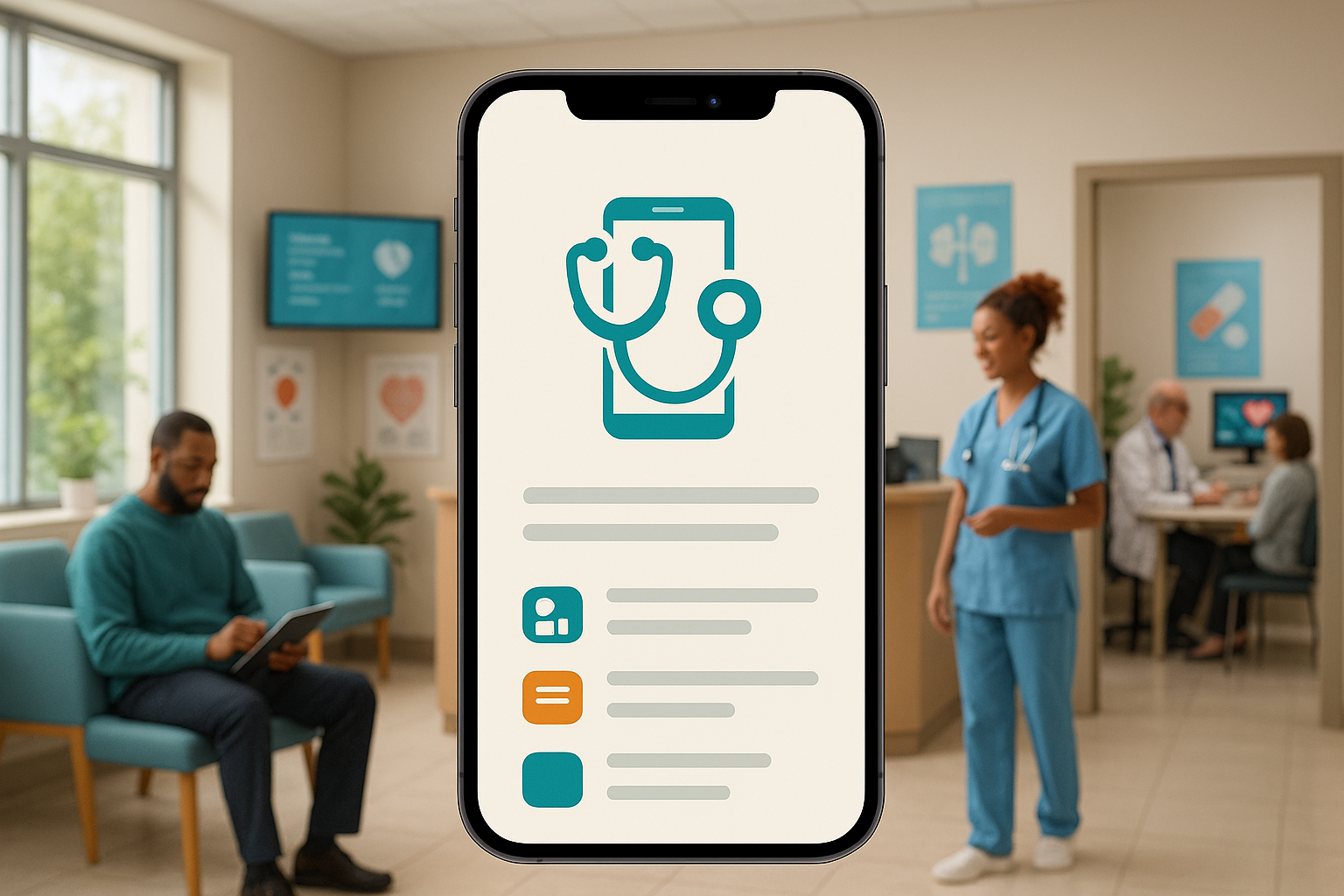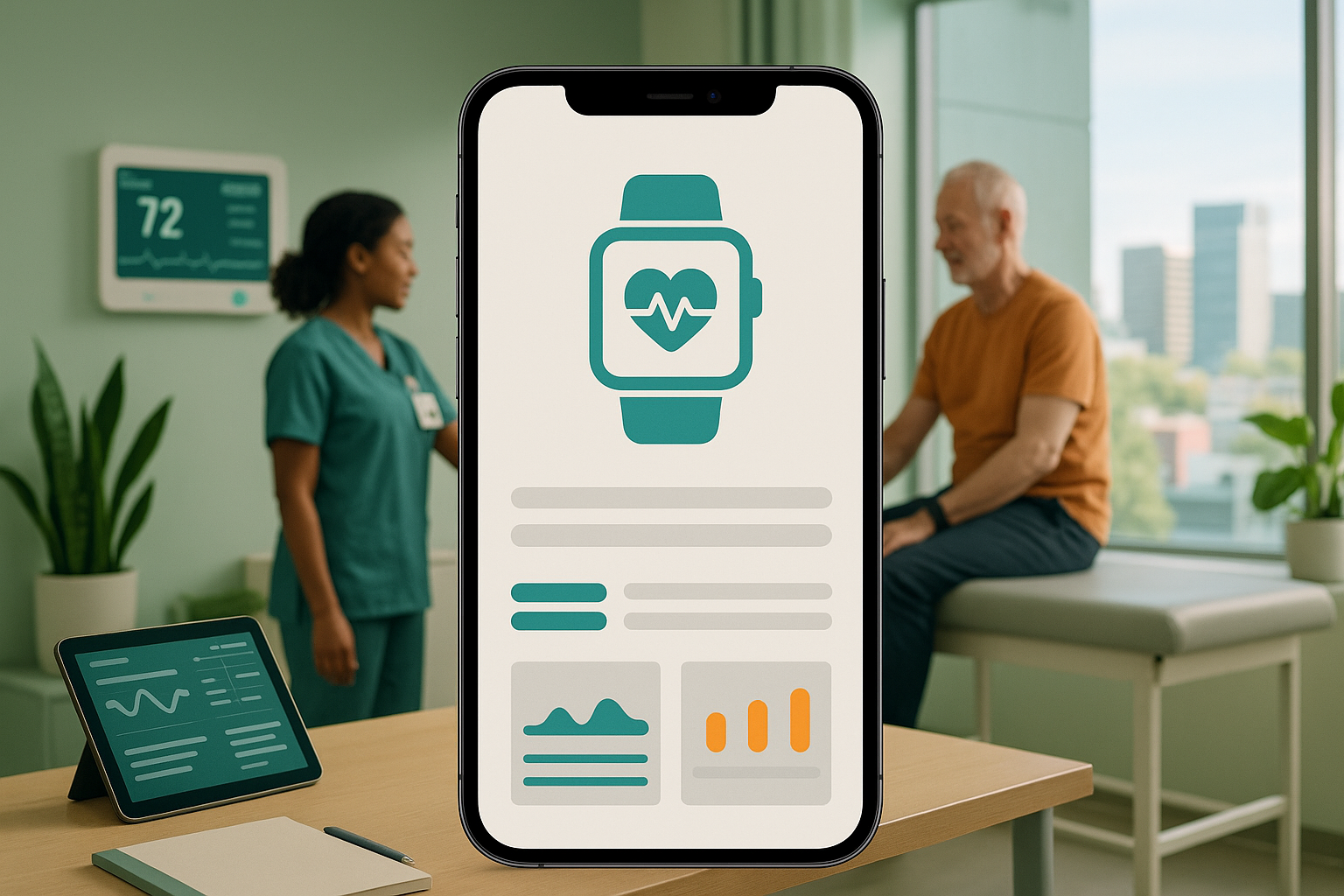Introduction
In today’s digital-first world, consumers expect instant access and control over every aspect of their lives, and healthcare is no exception. The demand for transparent, convenient, and user-centric health insurance solutions has never been higher. A mobile app seems like the obvious answer, a direct channel to provide policyholders with the tools they need. However, the path from concept to a successful health insurance app is fraught with unique and significant challenges. Development involves navigating a labyrinth of stringent regulatory compliance like HIPAA, integrating with disparate and often legacy systems, and engineering a feature-rich experience that is both secure and intuitive for the user.
Attempting to build such a sophisticated application in-house can quickly drain resources, lead to compliance missteps, and result in a product that fails to meet user expectations. This article serves as a comprehensive guide to understanding the world of health insurance app development. We will explore what these applications are, delve into the critical features that define a successful app, and break down the reasons why in-house development is so difficult. Furthermore, we will provide a realistic cost estimate and introduce you to the top companies that can turn your vision into a reality.
As a top US AI-powered app development firm with over 20 years of experience and more than 120 successful projects launched, we at MetaCTO understand these complexities intimately. We specialize in transforming ambitious ideas into secure, scalable, and market-ready mobile applications. We don’t just build apps; we build businesses. This guide will provide you with the foundational knowledge you need, demonstrating how a strategic partnership with an expert firm like ours is the most effective way to navigate the development journey.
What is a Health Insurance App?
At its core, a health insurance app is a mobile application designed to provide extensive medical insurance solutions for users seeking to insure their health. But to view it merely as a digital version of an insurance card would be a gross oversimplification. A modern health insurance app is a powerful, multifaceted tool that serves as a central hub for a user’s entire healthcare journey. It empowers customers by placing control, information, and access directly into their hands, available on any device they use.
These applications are engineered to streamline processes that were once cumbersome and paper-laden. One of the primary benefits is the elimination of excess paperwork in getting insurance and coverage, offering a seamless and efficient user experience from the very beginning. Beyond initial setup, these apps become indispensable daily tools for managing health and wellness.
A robust health insurance app offers a wide array of functionalities designed to simplify every interaction with the insurance system. These include:
- Policy Management: Users can effortlessly renew policies and receive timely renewal reminders, preventing lapses in coverage.
- Hassle-Free Payments: The app facilitates easy and secure payments for premiums and other services.
- Claim Submission: Customers can make claims directly through the app, a feature that dramatically simplifies a traditionally complex process.
- Customer Support: The ability to contact customer care is integrated directly, providing a quick path to resolving issues.
- Provider Network Access: Users can find doctors within the insurance network and get detailed information about network hospitals.
- Telehealth and Communication: Many apps provide on-demand access to exceptional doctors and allow users to message them through authorized and secured channels.
Moreover, a well-designed app can offer personalized services, such as a private treatment plan tailored to meet a customer’s specific needs. By consolidating these critical functions into one accessible platform, health insurance apps demystify the insurance process and foster a more proactive and engaged relationship between the insurer and the insured. Leading examples in the market, such as Oscar, Aetna, MyIH, and myCigna, showcase the potential of these platforms to transform the user experience.
Reasons It Is Difficult to Develop a Health Insurance App In-House
While the benefits of a health insurance app are clear, the development process is exceptionally challenging, particularly for organizations attempting to build one entirely in-house. The hurdles extend far beyond typical app development, encompassing stringent legal requirements, deep technical complexity, and the need for specialized expertise. This is why it is rare to find healthcare-related organizations using self-developed HIPAA-compliant software; they most often prefer working with expert partner companies to augment their services.
Here are the primary reasons why in-house development is so challenging.
Challenge 1: Achieving and Maintaining HIPAA Compliance
The Health Insurance Portability and Accountability Act (HIPAA) sets the standard for protecting sensitive patient data. For a health insurance app, compliance is not optional—it is a legal and ethical mandate. A breach can result in severe financial penalties, legal action, and irreparable damage to an organization’s reputation.
Achieving HIPAA compliance in software development is a specialized discipline. It requires a deep understanding of the Security Rule, Privacy Rule, and Breach Notification Rule. This includes implementing specific administrative, physical, and technical safeguards. For an in-house team without prior, dedicated experience in this domain, the learning curve is steep and the risks are high. This is why many organizations choose to turn to a 3rd party for HIPAA risk assessments and other compliance services. The prudent approach is to hire or partner with a solution provider who is a HIPAA compliance and security expert, as this indicates a common lack of necessary in-house expertise.
Challenge 2: Handling Complex Integrations
A health insurance app does not exist in a vacuum. To be functional, it must communicate with a multitude of external systems. The cost to develop a health insurance app often starts in the range of $150,000 to $200,000, a figure largely driven by the necessity of these complex integrations.
An in-house team would need to build and maintain integrations with:
- Payment Gateways: To handle premium payments, co-pays, and other financial transactions securely.
- Provider Databases: To provide users with up-to-date lists of in-network doctors and hospitals.
- Electronic Health Record (EHR) Systems: To allow for the secure sharing of medical data between patients and providers.
- Claims Processing Systems: To enable the submission, tracking, and management of insurance claims.
- Communication APIs: To support features like secure chat, voice calls, and video consultations with doctors and support staff.
Each integration is a project in itself, requiring meticulous planning, development, and testing to ensure data flows securely and reliably. Managing this web of connections is a significant technical undertaking that requires a seasoned development team.
Challenge 3: Building a Comprehensive and Robust Feature Set
A modern health insurance app must offer a rich suite of features to meet user expectations. Each feature adds layers of complexity to the development process. Below is a breakdown of the essential features and the challenges they present.
| Feature Category | Essential Components | Development Complexity |
|---|---|---|
| User & Policy Management | User Profile, Policy Details | High |
| Financial Transactions | Claim Management, Payment Management | Very High |
| Communication & Support | Efficient Communication, Media Sharing, Push Notifications | High |
| Health & Wellness | Early Diagnosis | High |
| Security & Compliance | Multi-Factor Authentication, In-App Payment Integration | Very High |
User and Policy Management
- User Profile: This is more than a simple login. The User Profile feature allows users to register and manage their profiles using phone numbers, emails, policy information, and other essential data. It must be architected to provide personalized user experiences while securely handling personally identifiable information (PII).
- Policy Details: This feature provides users with detailed information about their policy, including deductibles, coverage details, and premiums. A key function is allowing users to compare their current plan with other insurance plans, which requires sophisticated data handling and a clear, intuitive user interface to present complex information effectively.
Financial Transactions
- Claim Management: This is one of the most critical and complex features. A robust Claim Management module allows users to submit, track, and manage their insurance claims. It must support the uploading of supporting documents and provide real-time status updates directly on the app. The backend logic for processing and updating claim statuses requires secure and reliable integration with the insurer’s core systems.
- Payment Management: An effective Payment Management feature must provide various payment options, allow users to sign up quickly, and automate invoice processing. It may also need to handle complex logic for offering commissions and incentives. Building this requires expertise in financial systems and e-commerce platforms.
- In-App Payment Integration: This feature is focused on making payments seamless. It involves integrating a secure payment gateway to help users pay premiums conveniently and on time. It provides hassle-free payment options and allows for swift bill settlement following medical appointments, reducing friction for the user and administrative overhead for the insurer.
Communication and Support
- Efficient Communication: To be truly useful, an app must facilitate easy communication. This feature allows users to connect with insurers, customer support officers, and healthcare providers. It must support multiple modes, including video calls, chat, and voice calls, all of which need to be secure, reliable, and HIPAA-compliant.
- Media Sharing: This allows patients to securely share medication documents or any medical reports needed for further analysis by a doctor. This requires secure file storage and transfer protocols to protect sensitive health information.
- Push Notifications: This feature keeps users engaged and informed. The Push Notifications system provides users with important reminders and updates promptly, informing them about claim updates, policy changes, and essential healthcare alerts.
Health and Wellness
- Early Diagnosis: More advanced apps empower users to take a proactive role in their health. The Early Diagnosis feature provides users with easy access to medical guidance. It can empower users to obtain an initial diagnosis of their health problem through a questionnaire and helps them get the right doctor based on the results. Building this often involves complex logic trees or even machine learning models.
Security and Compliance
- Multi-Factor Authentication (MFA): Security is paramount. An MFA feature keeps the app secure and protects users’ privacy. To adhere to HIPAA compliance, it requires more than a simple password, often using a one-time code sent via SMS or a biometric scan for app accessibility.
Developing this entire ecosystem of features in-house is a monumental task. It requires a large, multidisciplinary team of product managers, UX/UI designers, frontend and backend developers, security experts, and QA engineers, all with experience in the healthcare domain. For most organizations, partnering with a specialized mobile app development agency like MetaCTO is a more strategic, efficient, and secure path to launching a successful product.
Cost Estimate for Developing a Health Insurance App
Understanding the financial investment required is a critical step in planning your project. Given the complexity, security requirements, and necessary integrations, developing a health insurance app is a significant undertaking.
Based on industry analysis, the cost to develop a health insurance app is comparable to that of hospital or provider apps. A typical starting cost falls within the range of $150,000 to $200,000.
It is crucial to understand that this is a starting figure. The final cost can be substantially higher depending on several factors:
- Feature Complexity: The more advanced features you include, the higher the cost. An app with basic policy viewing and payment features will cost less than one with integrated telehealth video consultations, an AI-powered early diagnosis tool, and comprehensive claim management.
- Platform Support: Developing natively for both iOS and Android will cost more than developing for a single platform.
- Third-Party Integrations: As mentioned, integrations are a primary cost driver. Each integration with a payment gateway, EHR system, or provider database adds to the development timeline and budget.
- Compliance and Security: Building in the necessary safeguards to meet HIPAA standards requires specialized expertise and rigorous testing, which contributes to the overall cost.
- Ongoing Maintenance and Updates: The initial development cost is not the final expense. Apps require ongoing maintenance, security updates, and feature enhancements to remain competitive and compliant.
While the investment is considerable, attempting to cut corners can lead to a failed project, security breaches, or a poor user experience that drives customers away. The key is to invest wisely by partnering with a firm that can deliver value and mitigate risk. At MetaCTO, our Rapid MVP Development service offers a strategic approach. We help you launch a core version of your app in as little as 90 days, allowing you to test your concept with real users, gather feedback, and secure investor confidence before committing to the full-scale development budget.
Top Health Insurance App Development Companies
Choosing the right development partner is the single most important decision you will make in your journey to launch a health insurance app. The right partner brings not only technical skill but also strategic insight, industry experience, and a proven process for success. Here are some of the top companies in the space.
1. MetaCTO
As a premier US AI-powered mobile app development agency, we at MetaCTO are uniquely positioned to handle the complexities of health insurance app development. With 20 years of app development experience, a portfolio of over 120 successful projects, and a 5-star rating on Clutch, we have a proven track record of delivering excellence.
What sets us apart is our comprehensive, end-to-end approach to partnership. We guide our clients through every stage of the app lifecycle:
- Validate: We turn your idea into a functional MVP in 90 days, allowing you to test the market, gather feedback, and secure funding efficiently.
- Build: We handle the entire process—from design and engineering to launch—ensuring your app is market-ready and delivers a seamless user experience. We build with security and compliance at the forefront of our process.
- Grow: After launch, we use data-driven strategies like A/B testing and analytics to optimize user onboarding, engagement, and retention, helping you build a loyal customer base.
- Monetize: We help you implement the most effective monetization strategies, whether through subscriptions, in-app purchases, or other models, to turn your app into a profitable venture.
- Evolve: As your business scales, we ensure your app evolves with it, upgrading your technology stack to stay competitive in a fast-moving market.
Our expertise in AI development also allows us to build next-generation features, such as intelligent diagnostics and personalization engines, to give your app a decisive edge.
2. Cognizant
Cognizant is a global technology giant with a dedicated healthcare division that has built hundreds of applications for insurance companies. Their deep industry experience makes them a formidable player in the space. A notable example of their recent work includes the development of a nationwide telehealth platform for a major insurance provider, showcasing their ability to execute large-scale, complex projects.
3. Tata Consultancy Services (TCS)
Tata Consultancy Services is another global leader in IT services and consulting. TCS works primarily with large insurance providers, leveraging its vast resources and global talent pool to deliver enterprise-grade digital solutions. Their focus is on helping established insurers modernize their operations and engage with customers through new digital channels.
4. Wipro
Wipro has a long history of working with insurance companies worldwide to create digital products. The company has a strong reputation for building apps and platforms that are highly scalable, capable of supporting growing user bases and handling high volumes of data. Their expertise is particularly valuable for insurers looking to build robust, high-performance systems that can stand the test of time and traffic.
Conclusion
The journey of developing a health insurance app is a complex but potentially transformative endeavor. These applications are no longer a novelty but a necessity for insurers who want to meet modern consumer expectations for convenience, transparency, and control. As we have explored, a successful app is a sophisticated ecosystem of features, from seamless policy and claim management to secure communication and advanced wellness tools.
However, the path to creating such a platform is filled with significant obstacles. The stringent requirements of HIPAA compliance, the technical difficulty of complex system integrations, and the sheer breadth of features required make in-house development a risky and resource-intensive proposition. The substantial starting investment of $150,000 to $200,000 underscores the need for a strategic, expert-led approach to ensure that capital is deployed effectively.
Navigating this landscape requires more than just a team of coders; it requires a strategic partner who understands the technology, the industry, and the business of building successful digital products. At MetaCTO, we are that partner. We handle every step of building your mobile app, from initial concept validation to long-term growth and evolution. We empower you to go to market faster, mitigate risks, and benefit from the expert guidance of a team that has successfully launched over 120 applications.
Don’t let the complexity of development hold you back from revolutionizing your customer experience. Talk with a Health Insurance app development expert at MetaCTO today, and let’s build an app that is better than you could have imagined.






